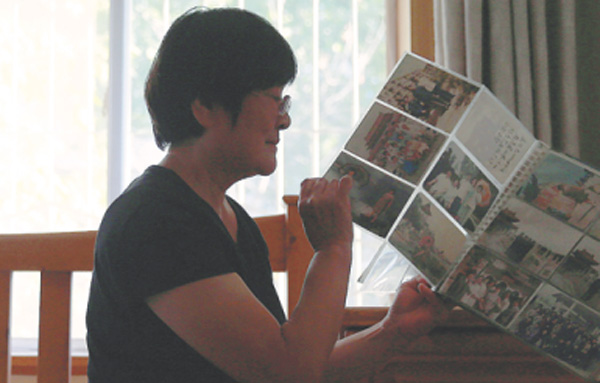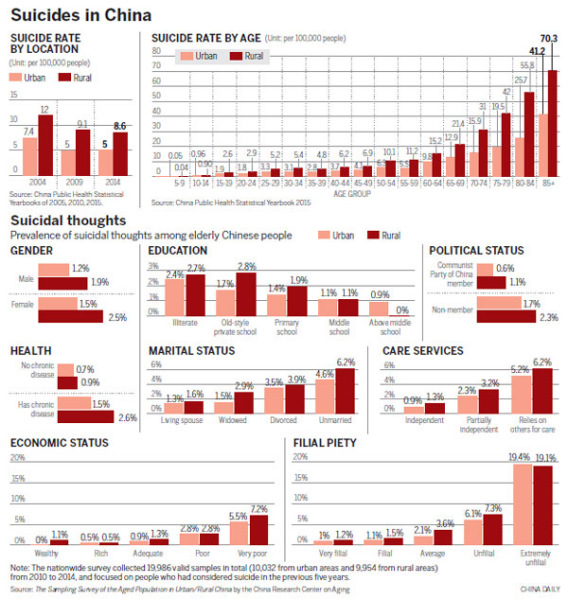
A retiree surnamed Liu, who thought of killing herself after a divorce, looks at her families' photos. (Photo by Zou Hong/China Daily)
The urban-rural gap
The significant difference in suicide rates between seniors living in urban and rural areas is a uniquely Chinese problem, according to Li from the Beijing Suicide Research and Prevention Center.
She attributes it to the differences in living standards, and medical and social services that exist in China's countryside versus its cities.
A study by the center found that 63 percent of those who took their own lives, and 40 percent of those who attempted to, had a mental disorder. The rates were even higher among people age 55 and above, Li said.
"But many people in rural areas still don't see mental problems as a disease and, even if they do, they lack the resources to get treatment," she said.
Yang Hua, a researcher with the China Rural Governance Study Center at Huazhong University of Science and Technology, has a different theory.
Based on field studies he has carried out since 2008 in Hubei, Henan, Hunan and Shaanxi provinces, he believes there are four main reasons for suicides among the elderly in rural areas: boredom, self-interest, altruism and desperation.
At one extreme, Yang said he discovered that half the elderly people who took their own lives in Jingshan county, Hubei province, did it for their families.
"When they are diagnosed with a disease that is incurable or the treatment is very expensive, they sometimes just choose to end their lives themselves; they don't want to be a burden on their children," he said.
In other cases, elderly "empty nesters" were left destitute after they became too old to farm, because farmers were not included in the national pension system until 2009.
Today, most farmers in China can receive at least 70 yuan ($10.50) per month from the central government plus a separate sum of money from the local government, which varies from place to place.
"It's not much, but in some poorer places, it gives hope to those who are struggling," said He Xuefeng, director of the China Rural Governance Study Center.
Yang, from the China Rural Governance Study Center, warned of the possible knock-on effects of urbanization on seniors in places like Henan and Hubei.
"Their children have left home and live in the city and because house prices are rising rapidly and the cost of raising children is so high, these children neglect their parents left in the countryside," he said.
"It is a very serious problem in a fast changing society, but still remains largely ignored."



















































